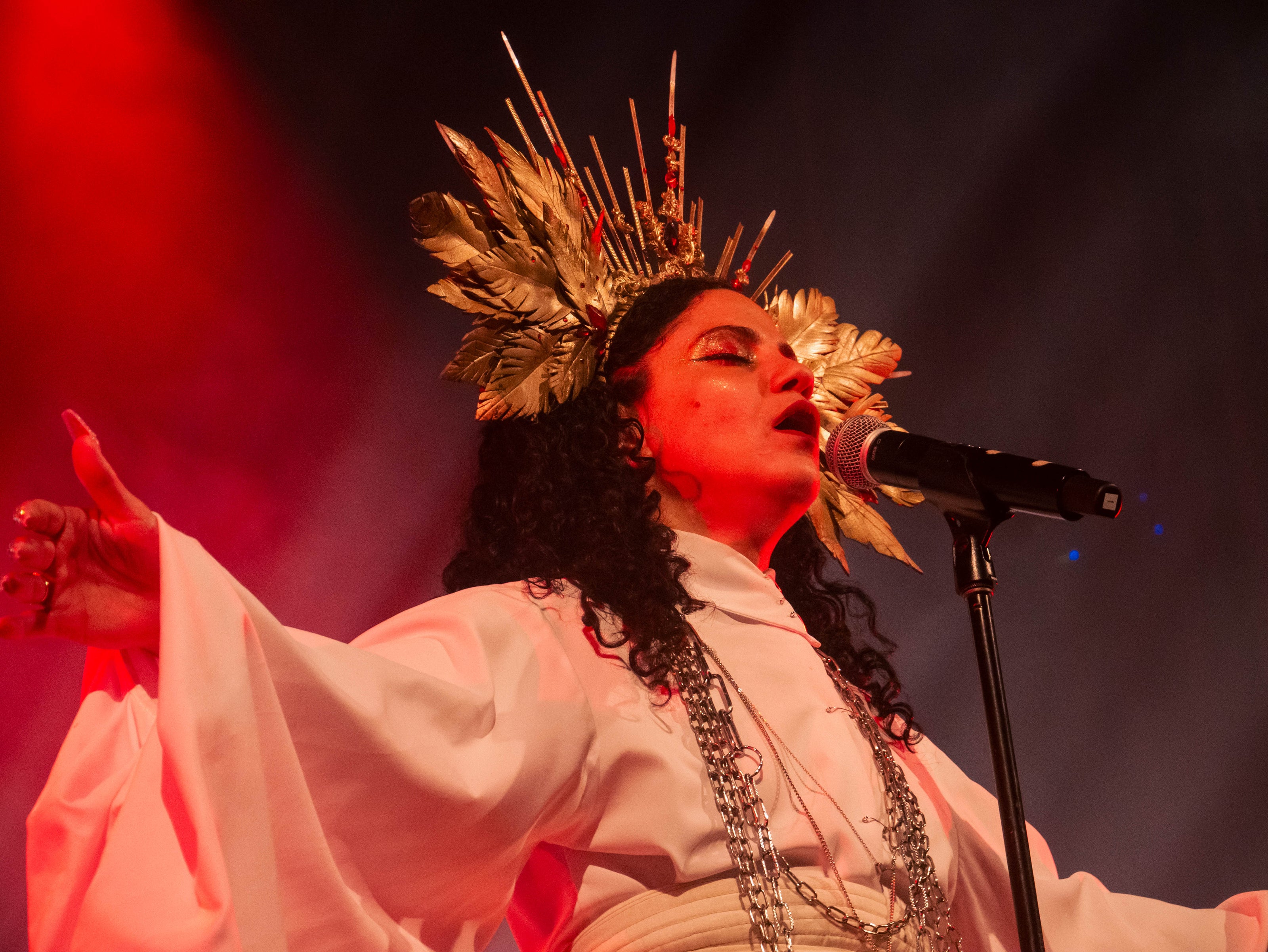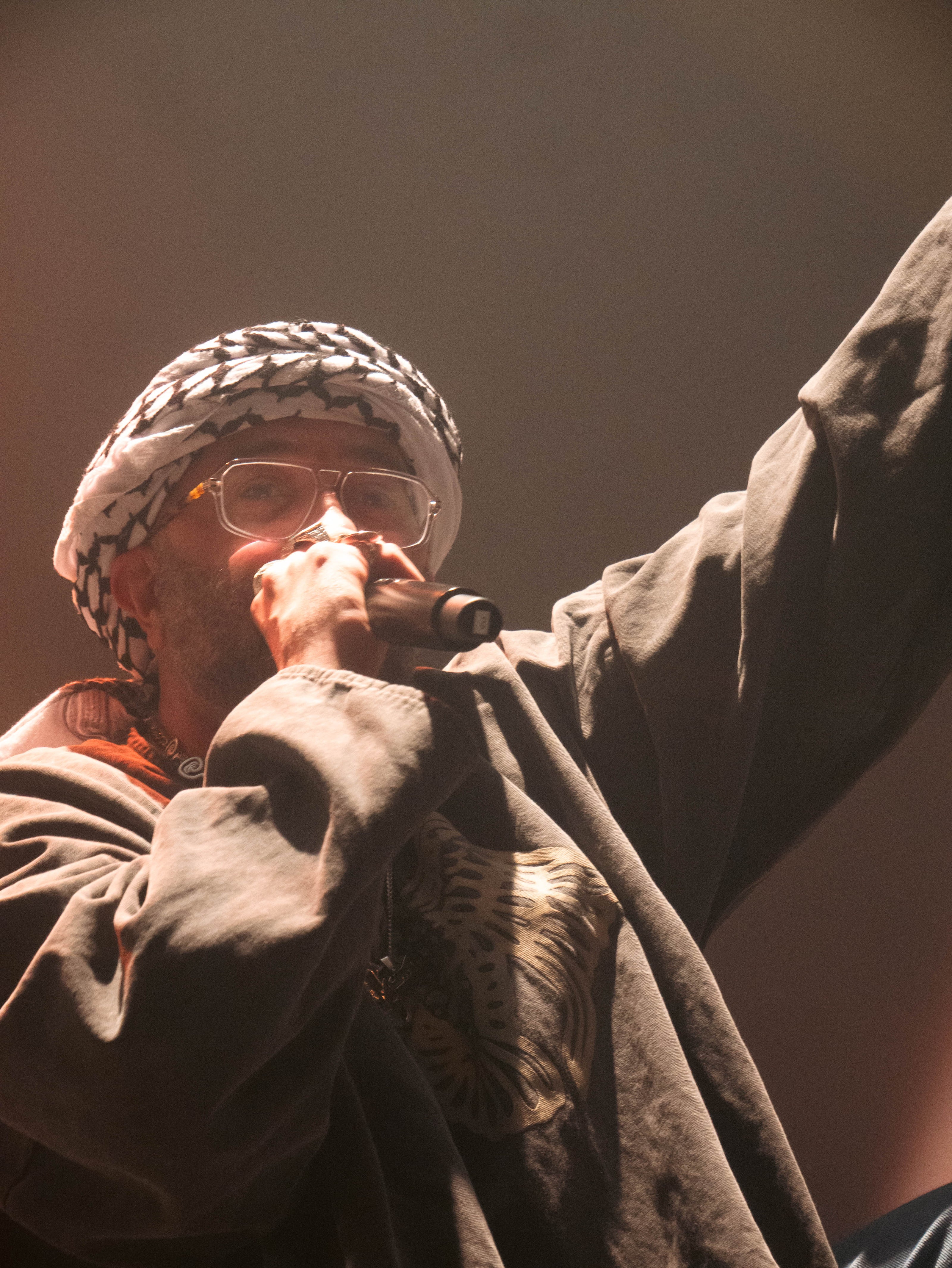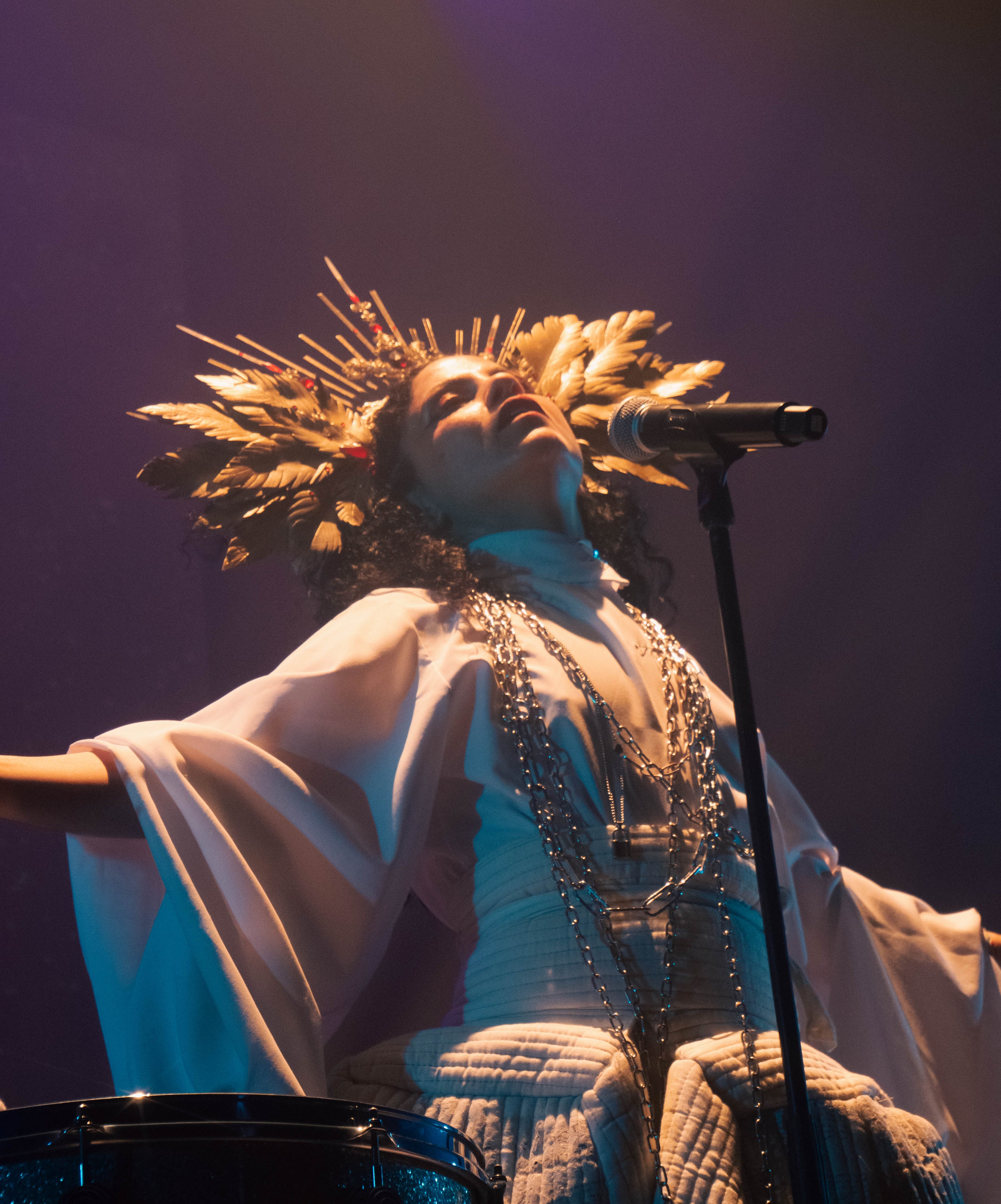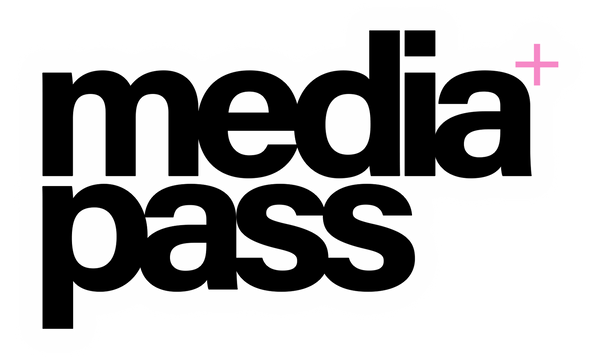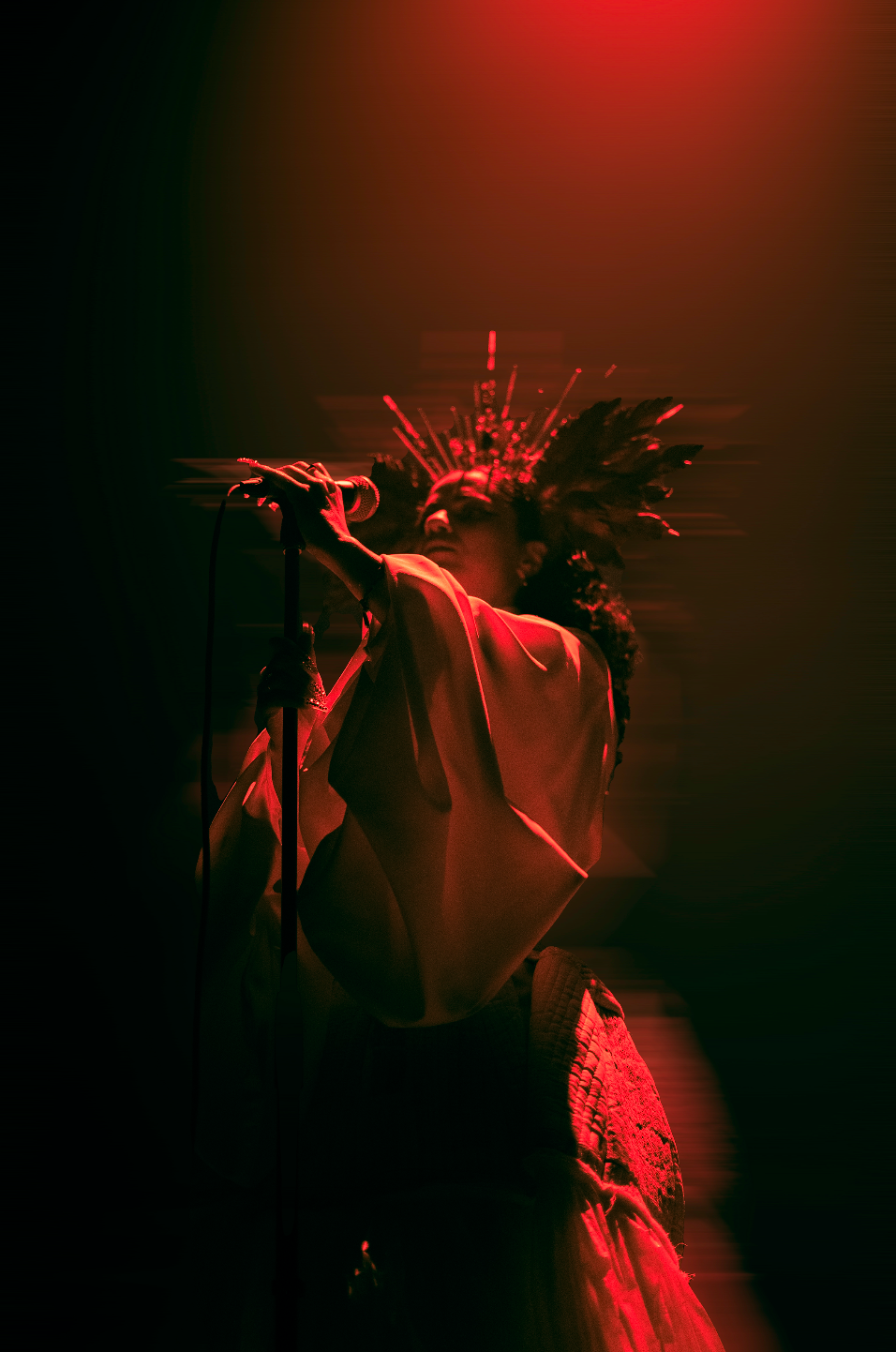
MRA: A Conversation with EMEL
Interview by Imani Dominique Busby (@imani.dominique)
Toronto Photography by Sofia Snook (@sofiasnook)
Montréal Photography by Tchayé Briat (@gba_okan)
EMEL has carved out a powerful space where music, culture, and resistance coalesce. In this enlightening conversation, we explore how she uses her music not only to bring people together but also as a tool for advocacy and protest. EMEL shares how she has defied reductive labels and pushed beyond genres with "MRA", her latest album. Fusing sonic influences from numerous cultures, languages, and dialects, "MRA" has resonated with audiences worldwide. EMEL is truly an inspirational and groundbreaking artist whose work stands at the intersection of art and activism.
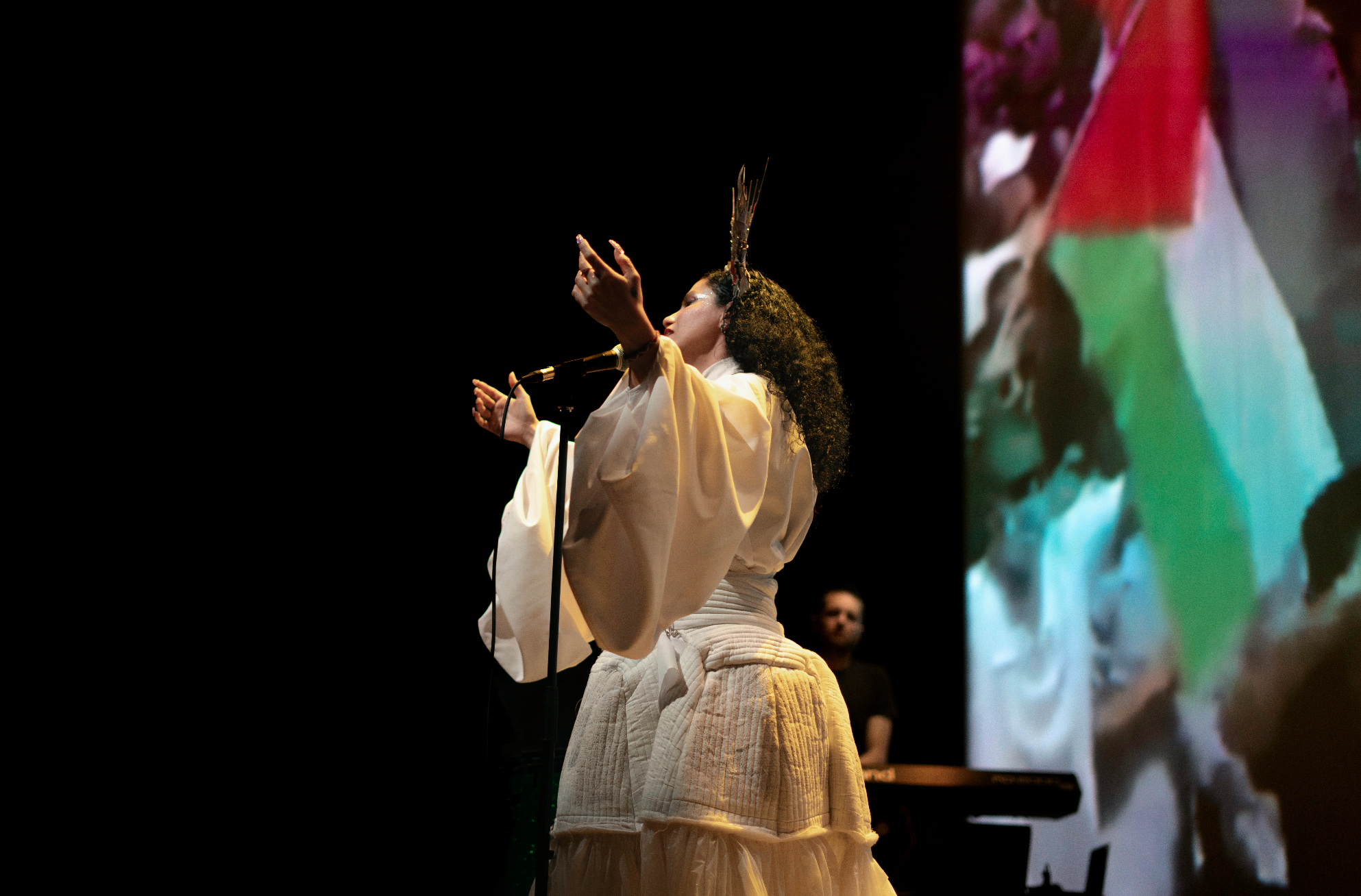
Can you please tell us a bit about yourself and why you started making music?
I love singing and I love learning songs, that's how my passion started. I've always liked the arts, theatre, and dance. Since I was a child, I was into playing characters and inventing melodies in my head. So I always felt like I wanted to be an artist. My friends started telling me that I had a nice voice, so I kept singing. Eventually, I founded a metal band in university where we started playing shows.
That’s my first connection to really being a musician and being on stage. I loved it and thought, “Well, I think this is what I really want to do.”
How did your upbringing in Tunisia and your time in Paris shape your sound?
We don't really have a music industry in Tunisia, we're on the outskirts of the world. You're just you and you. You don't limit yourself because you don't have an entourage or a real purpose. You're just playing music. In that way, that's how my taste became really eclectic.
I think I've always loved different kinds of music, different styles, different genres. Growing up in Tunisia and starting in Tunisia really developed that sense of freedom. I don't put limits at all. I could play metal, folk, electronic and then Arabic. I don't think that would have happened if I grew up somewhere else.
France was when I started really exploring music from all over the world. You could see a band from Cabo Verde, and then you could see a French rock band, and then you could see Indian music and Brazilian. I was curious about all of it. I was always curious about different sounds, instrumentations, and exploring different rhythms. I think it enriched my vision on how to shape my own music.
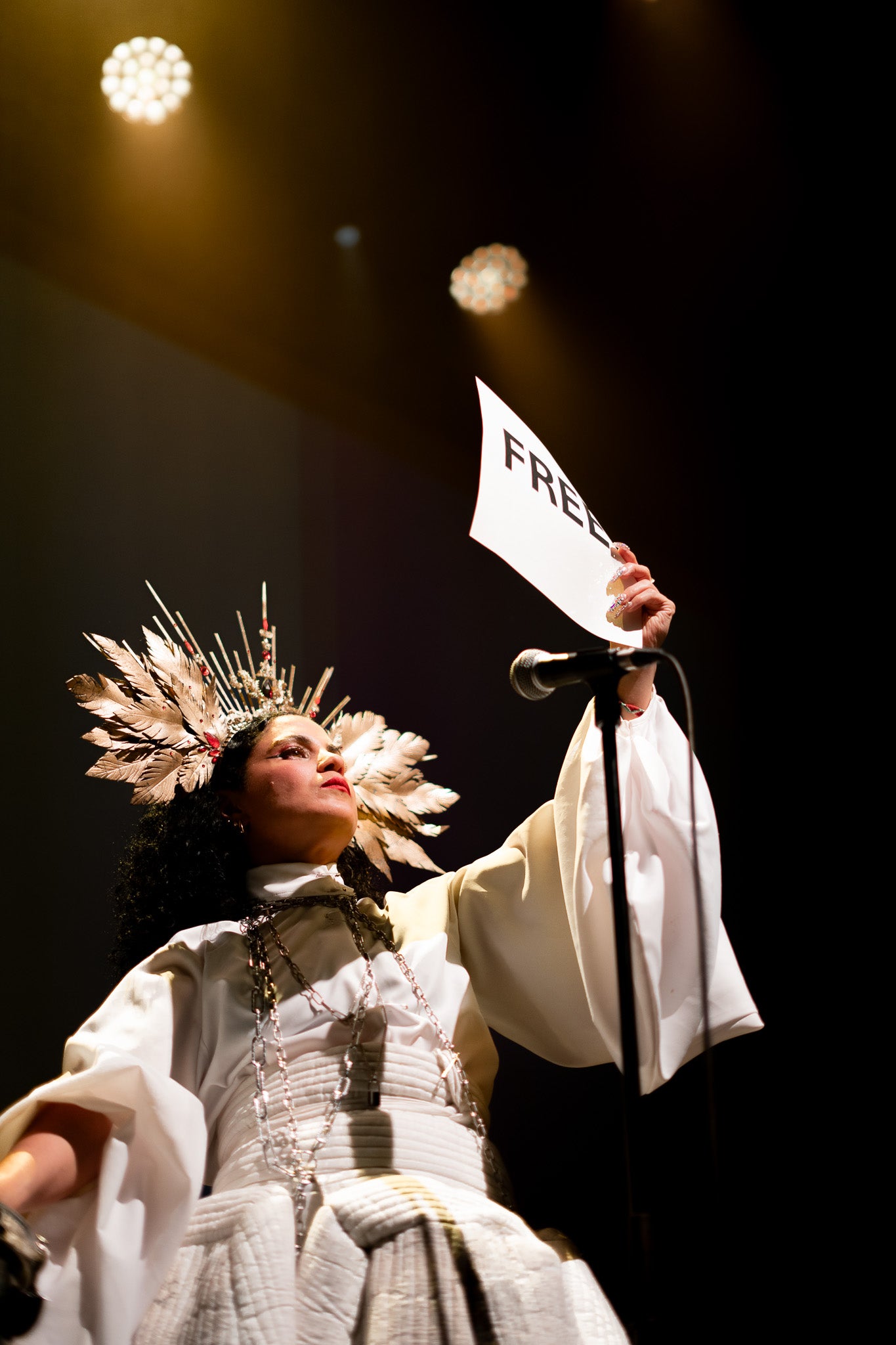
In 2010, you were named The Voice of the Arab Spring. What did that title mean to you?
At first, I didn't like it. I felt like the Western media just found the perfect box for me. Of course, it's a huge honour to have that title. It's like, “Okay, you're in history now.” It's amazing. But the way it was used by Western media made me reject it because I wanted to also be recognized for my art. I felt like it was a way to strip me from the many layers that I was.
I felt that in most of the interviews back then were always directed at politics. I wasn't a reporter, I really wanted to talk about my music, my instrumentations, my sonic experiences and even my voice. All the different qualities and effort that I put into making the music.
It was a little bit frustrating because I felt that the music I was putting out there was really innovative in so many ways, and that fell through the cracks. So that's why it was a little bit bittersweet. But then eventually, throughout the years, when I started seeing other artists, sometimes trying to pretend to be a little bit political. I thought, “Wait, but I'm that, actually. And there's nothing wrong with it.” I just have to embrace and keep pushing that I'm political, but I'm also innovating in music. And I thought the right way to do it is not by rejecting things inside me. Just keep pushing so that the Western media stops looking at us through their own lens.
How do you balance being both an artist and an activist? How do those identities influence each other?
Growing up in Tunisia, to me, it was, “Of course, I'm going to be a political musician. I cannot have this talent and this power and not use it.” I felt like I found my voice in many different ways. I found the thing that I want to do in life and the way to do it. Which was creating music, pushing the boundaries in music making, but also using that platform to talk about things that matter.
To me, it was all together from the start, from the moment I started writing songs. I didn't pick and choose, it just comes. For instance, my last album, I was trying to do a pop album. I had to play with pop and mainstream so I studied the songs and the structures. And yet a lot of the songs became really politically and socially charged.
I know how to write ballads and I know how to write different genres. But I think the message will always be there. So I just don't think it just comes in any effort of thinking and writing lyrics. It just comes.
Your album blends a plethora of genres including African Trap, Arabic Reggaeton, Hip Hop, and Drum n’ Bass. Additionally, the album features melodies and lyrics sung in 5 different languages & 3 dialects. Why did you choose to create the album in this way?
I can't do one vision things. Since the start, I was always passionate about the world. There's so many beautiful things in different cultures. We have something extraordinary, like such a beautiful human expression, which is culture, music and rhythms and arts. I think I'm very passionate in using that in my own music. Also, I feel like growing up in Tunisia also made me multicultural because we're very open on the Mediterranean. We are Africans, we are Arabs, we are also the natives, whatever that means. We have a lot of cultural mix, even in our language, we have some Turkish, we have some Spanish, we have some Italian, some French, such a big mix of things. I think growing up in Tunisia made me this multicultural.
Also, the household I grew up in. My dad really got us into international literature, Russian, English, French. I grew up listening to classical music like Beethoven and Vivaldi. I grew up also listening to really old jazz and blues. I feel like my foundation is multicultural. It's not I'm not just Tunisian.
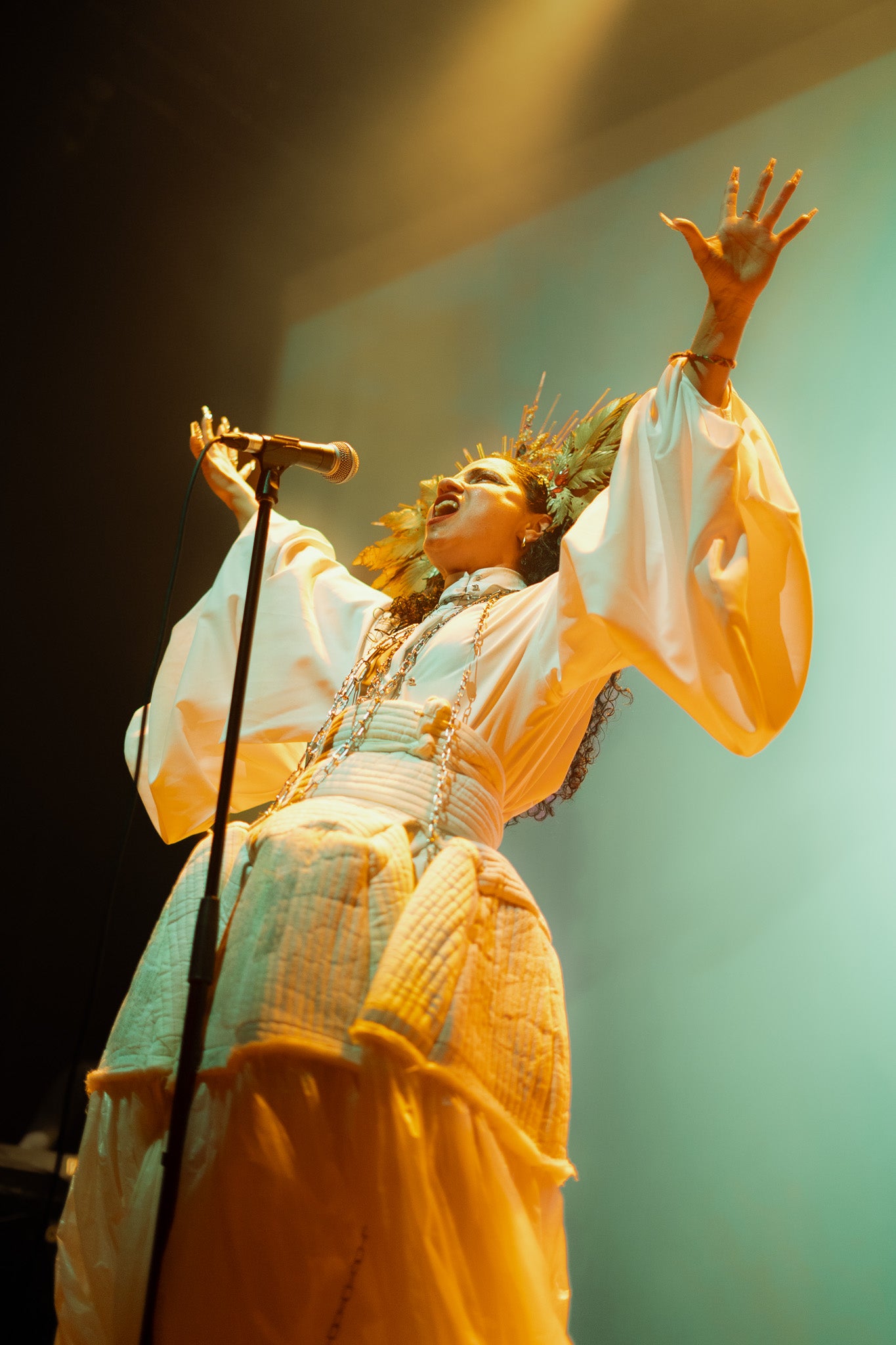
You’ve performed at underground concerts and in an illegal, all-women performance in Iran. What was that experience like? Were you ever afraid and if so, how did you find your courage?
Someone asked me about courage and fear. I never feel fear when I'm doing music. I feel like when I'm singing, it's like a magic power. It feels like a potion and all of a sudden you have an armour, and you can fly. That's how I feel when I'm singing, when I'm playing music. So there was never a place for fear.
And I know also that I'm on the right side. That's the most truthful human expression. I'm not wrong, so I can't be scared. In the normal life, yes. Then boom. It's really like a magic costume.
Oh, wow. That's very inspirational. It's good advice, too. If there's something you believe in and you know it's what you need to be doing, then you can’t let fear stop you.
Yeah. Every one of us can find their magic costume where they're their most accomplished self, their most authentic self. It can be anything. Some people feel like that when they're dancing Zumba or when they're with their children. There's one part in your life where it's just – you're complete.
Can you tell us about "Naci En Palestina"? What did it mean to perform it live in Palestine?
I've been thinking about Palestine since I started making music. It's such a big part of my journey because, again, some issues need to be talked about over and over and over and need to be visualized and pushed.
We need to talk about Palestine as much as possible. So when finally I was able to go there, of course, it was the most moving experience in my life because I got to really see Palestinians at home. Their resilience was extremely inspiring and great to see and witness and see just their joy, their natural joy despite everything.
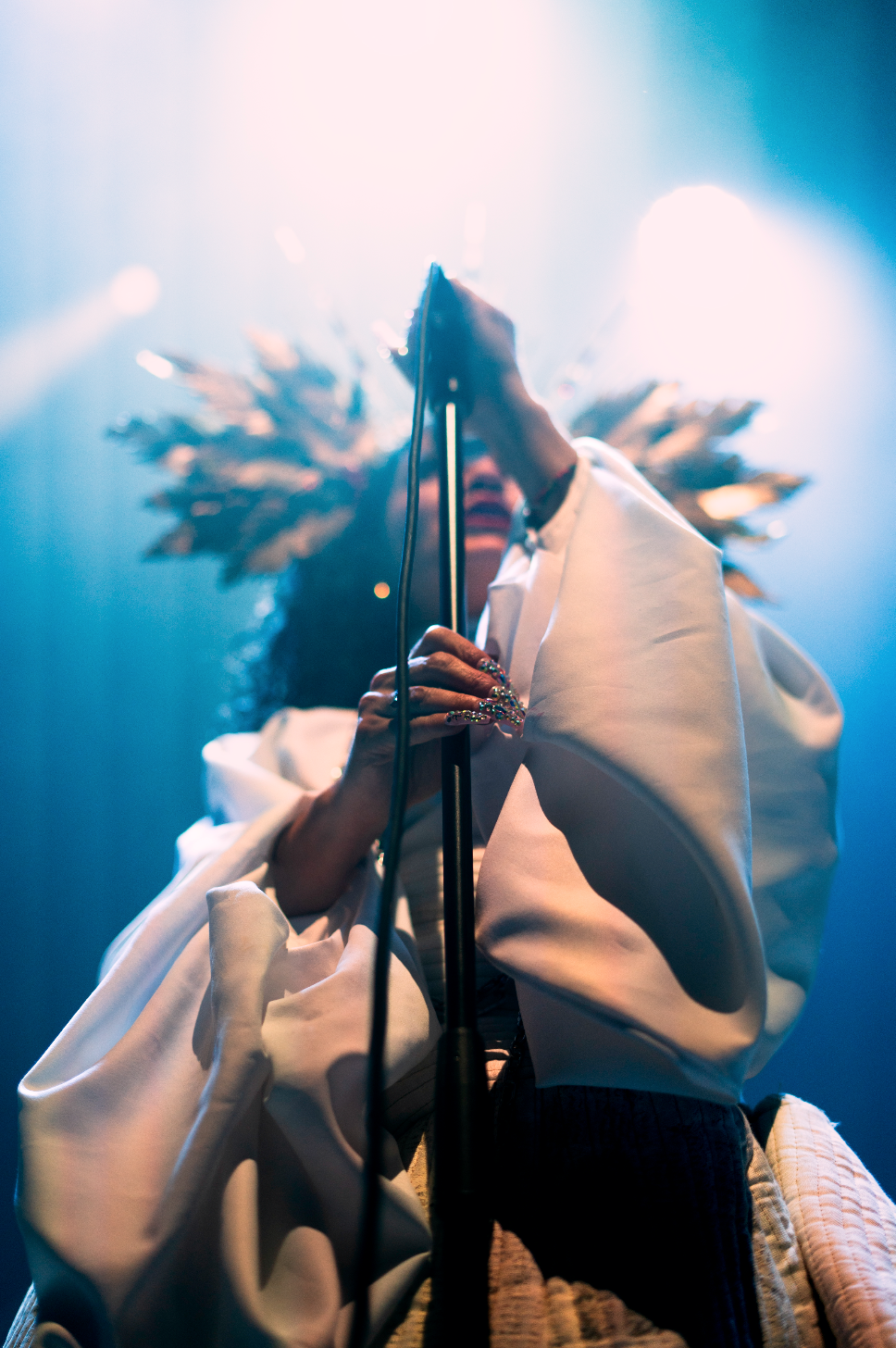
What impact do you hope MRA will have on the listener?
I think it's having the impact that I hope it would have, which is to be perceived as this super diverse a eclectic international experience where everyone is welcome and to just keep giving strength to people in hope and encourage to keep pushing for their own quest and to keep pushing for their own quest and to really be who they are, and also to see women.
Because the reason why I made this album, is so that we can eradicate the invisibility in which women are placed, and not just in music. By sharing my stage and my platform with other women, I want to project the message that, first of all, when we're together, we're stronger and we're beautiful. We're not rivals. And that every one of us, every woman has to push other women in front and not be scared of other women. We need to trust each other.
You have shows in Toronto and Montreal! What are you most excited about for these performances?
I'm really excited about presenting my album and just presenting this new chapter of me. Telling all the stories that are on this album and that are in my head, and also to collaborate with some amazing artists that I've been a huge fan of, like Austria, who is from Toronto.
To me, it's a dream that's on my bucket list. I mean, it was never on the bucket list because I didn't think it was possible. But for us to meet together at this moment with our voices.
It's hard because most of the music that you don't really have many beautiful voices out there, really beautiful and strong and authentic, and deep. And Austra has that.
This is one of the most incredible things that I get to do on my music path. I've also written with amazing singer Nida, who's Iranian. I've been passionate about Iran and Iranian music for so long. This is the first time actually that I'm going to sing Persian with a Persian I'm a singer. There's many firsts tonight.
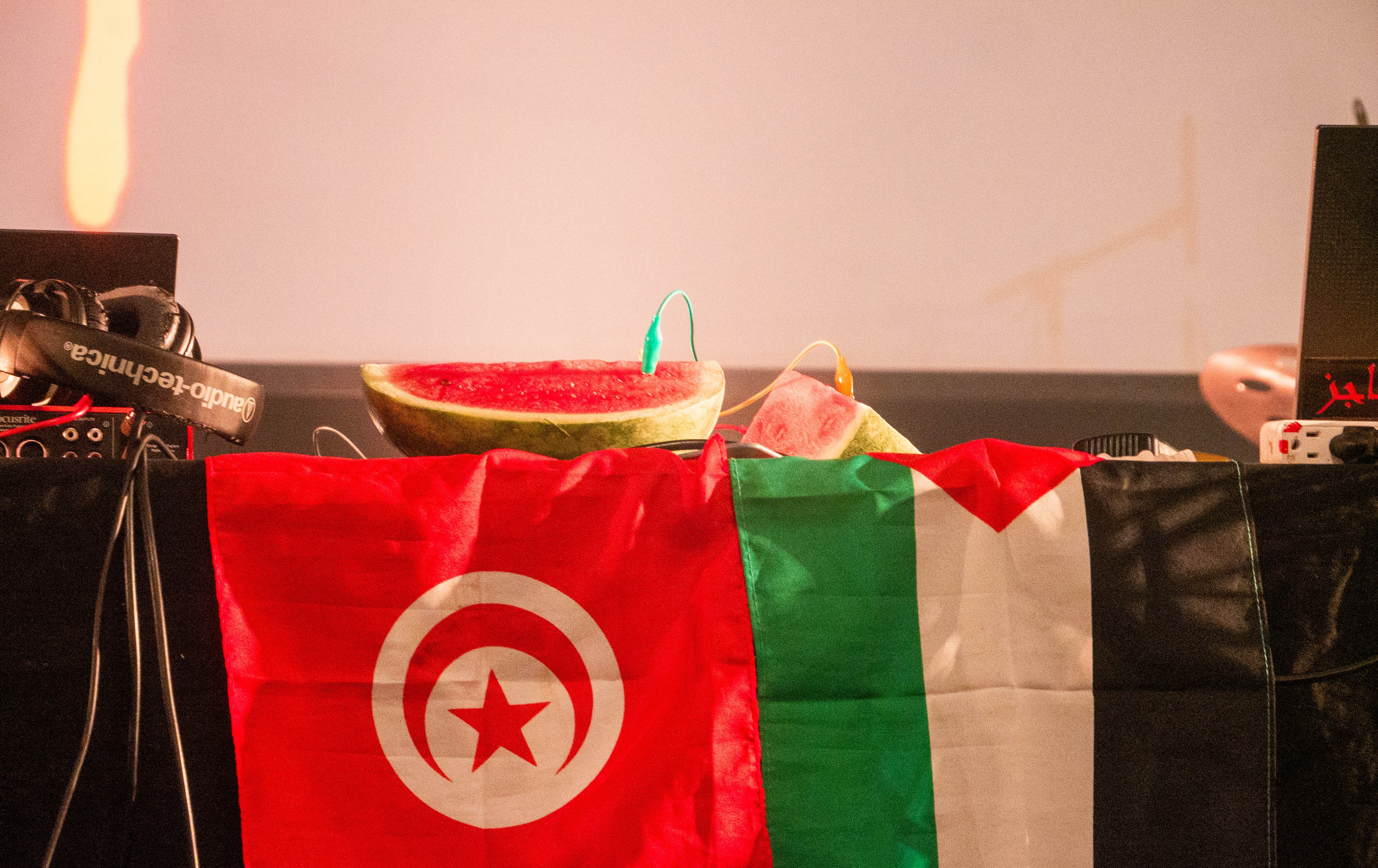
That's so exciting. Wow. Thank you. Well, those are all my questions. I don't know if there's anything that you feel is missed or that you'd want to touch on.
No, I feel it's great. I feel like we touched on everything. But I have a request for you. We're working on some an anniversary video for MRA because it's going to be one year old soon.
Oh my gosh.
Would you like to participate?
Yes, absolutely.
Toronto, ON
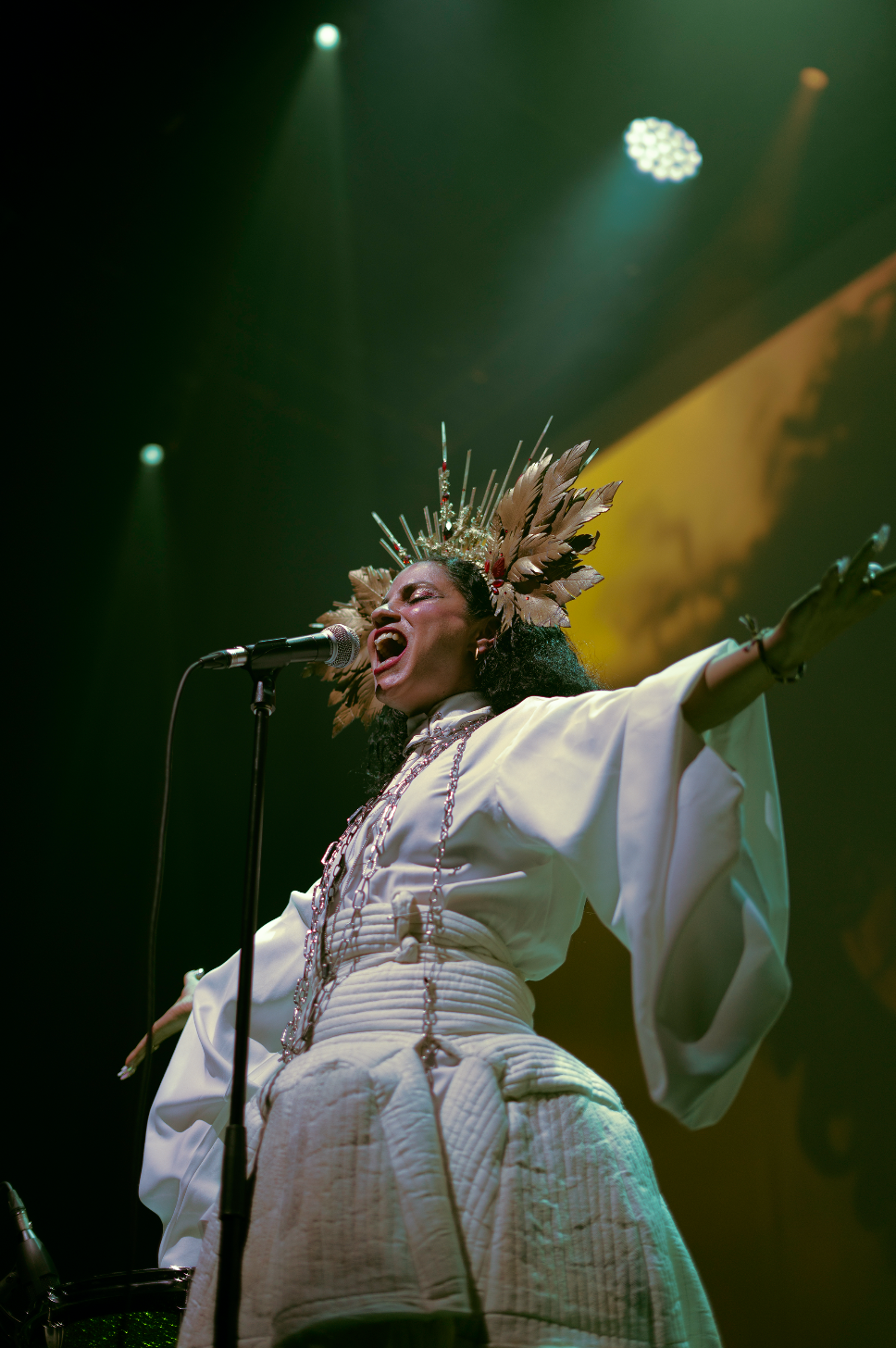
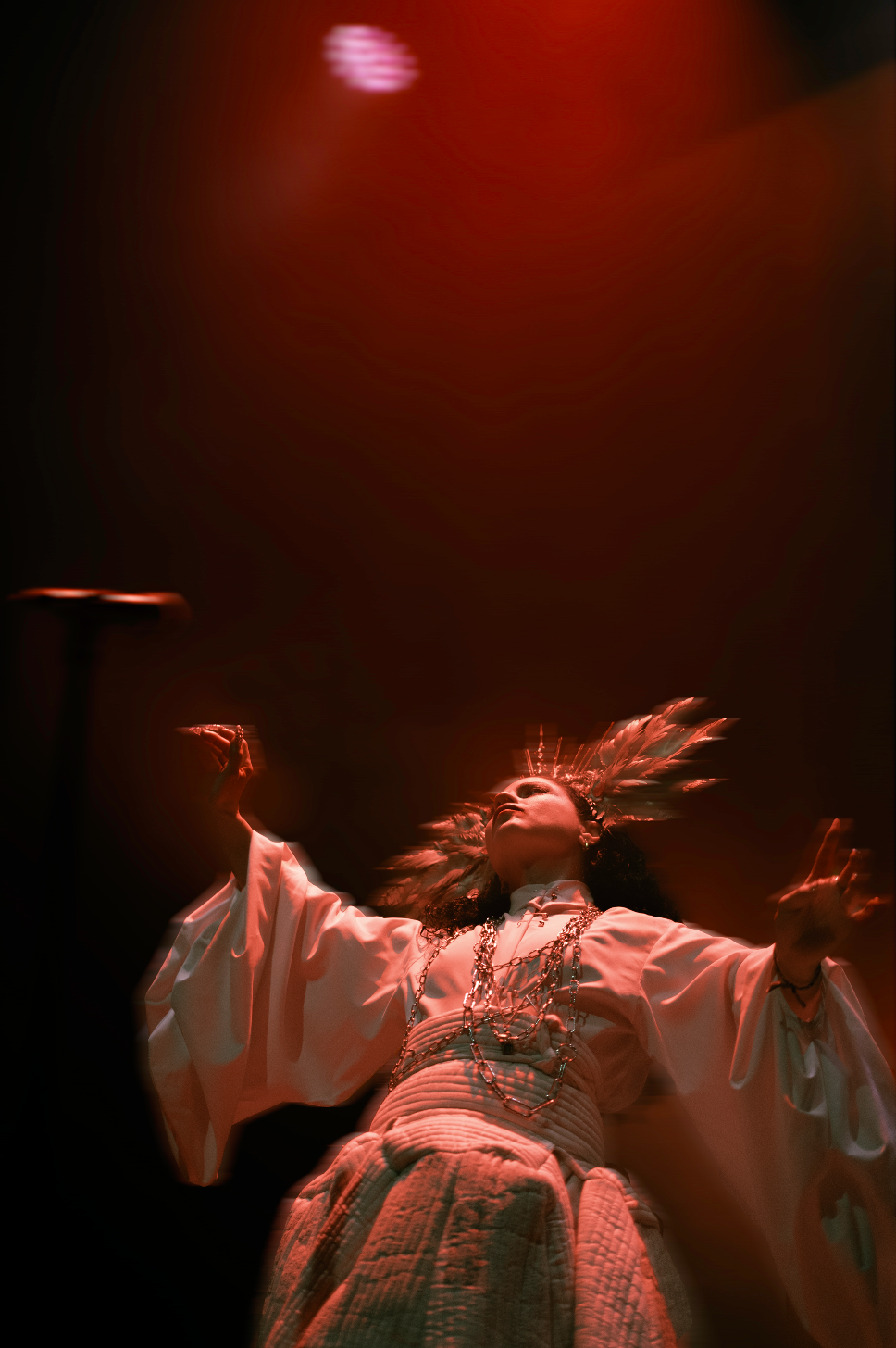
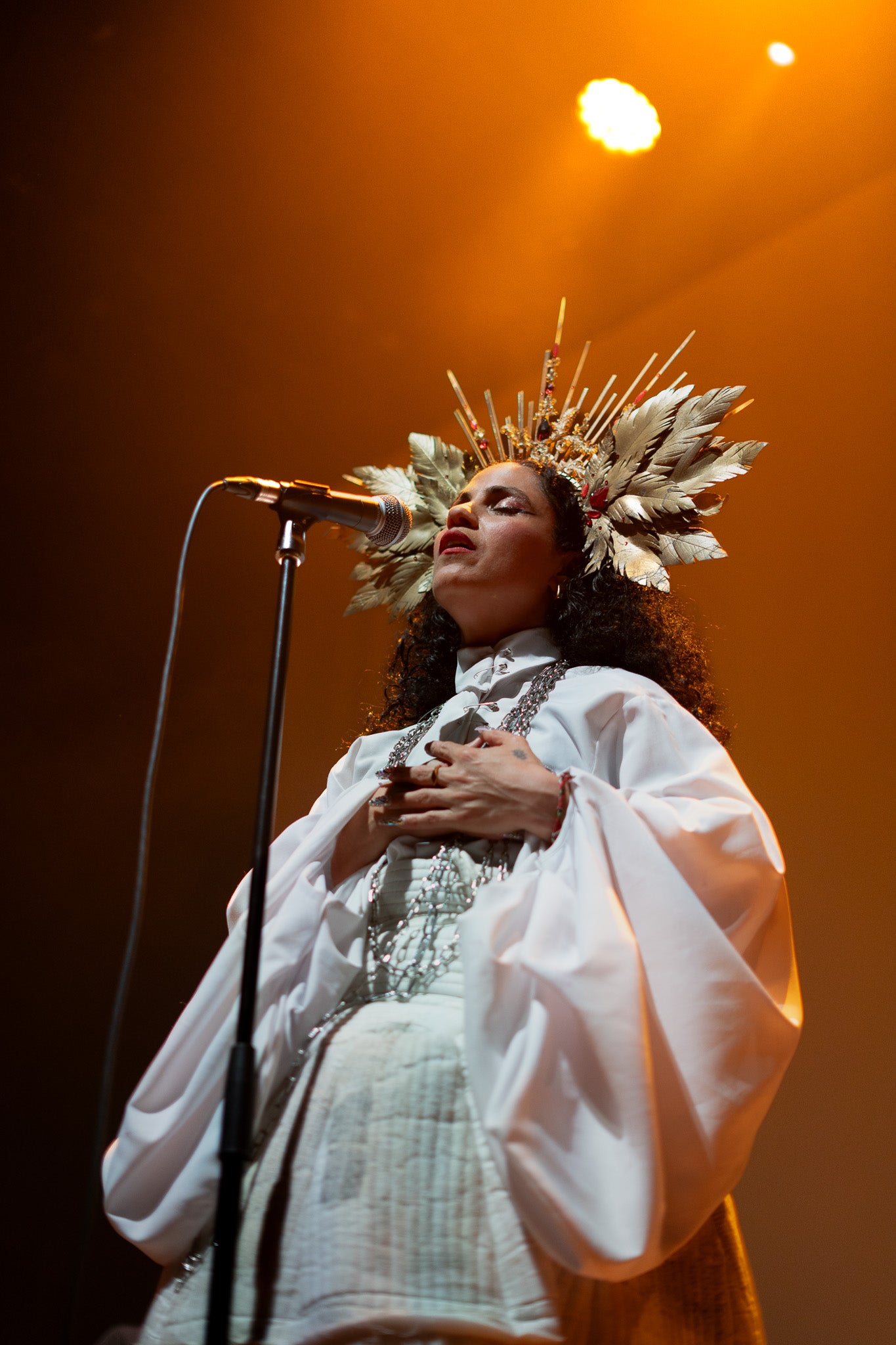
Montreal, QC
